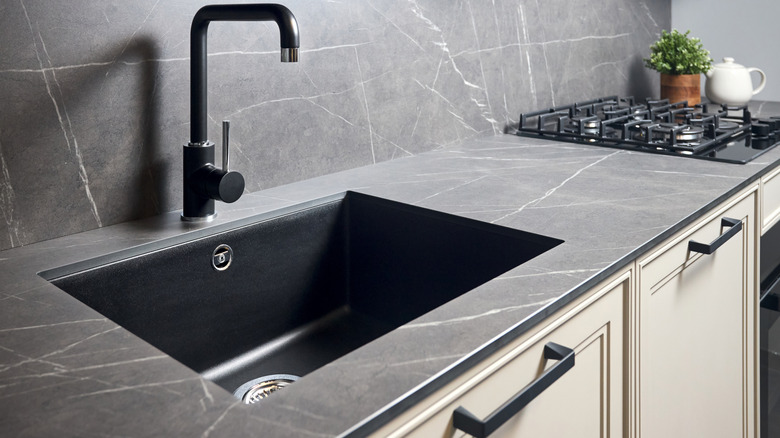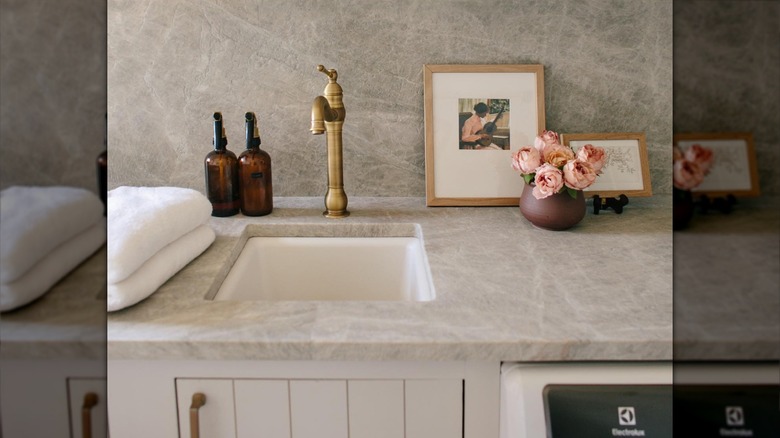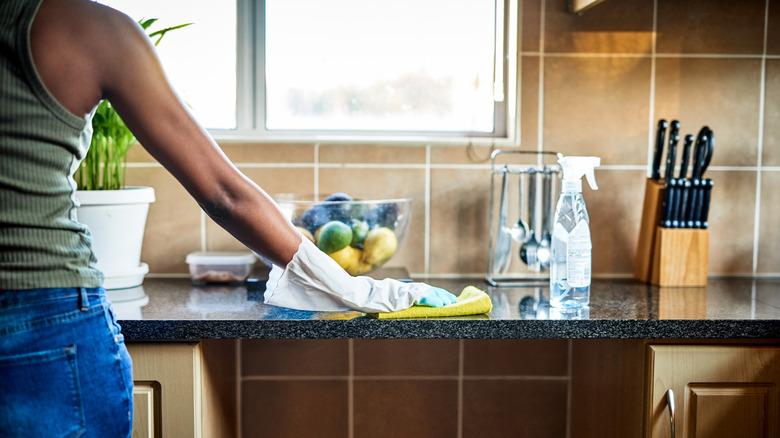Top Reasons To Consider Leathered Quartzite Countertops Over Honed Or Polished
Making decisions for your home's interior design can be overwhelming yet absolutely necessary. When you're working on your kitchen's look, selecting the best type of countertop with the right varnish is imperative, not just for aesthetic reasons but also to ensure functionality. There are so many stylish countertop materials, but if you're leaning towards quartzite (which is not the same as quartz, by the way), you should know about the different finishes available.
Quartzite countertops typically come in three finishes – leathered, honed, and polished. While honed and polished are more common and affordable, leathered quartzite has some advantages over the other two that can make it a great choice for your counters. Reasons like their classic texture, scratch resistance, aesthetic versatility, and ambiance make them worth more than a cursory glance in your search for a unique countertop finish that will upgrade your kitchen.
The three finishes have different appearances because of their production processes. Leathered quartzite is made by using a special technique that gives the stone a matte, yet textured look. This births a leather-like design that feels more organic due to the contours made by abrasive brushing. On the other hand, honed variations also have a matte look but with a smooth texture, while polished quartzite has a mirror-like sheen. Leathered quartzite's luxurious texture, character, and natural appearance puts it above the other finishes of stone.
More benefits to leathered quartzite
Leathered quartzite's rough texture protects the surface from minor scratches and smudges, ensuring the countertop won't suffer in high-traffic areas like the kitchen or bathroom. This particular property increases its durability. Quartzite on its own is the hardest natural stone countertop available, coming at an eight out of 10 on the Moh's hardness scale. Add scratch-resistant to that equation and we're talking countertop heaven. Being smudge-resistant also means you don't have to wipe down your counters as frequently as you would a polished one. The leather finish is definitely a countertop upgrade that is worth the extra cost.
Another reason you should consider this textured finish is because of the relaxed atmosphere it can give your space. Shiny and/or smooth surfaces like polished and honed quartzite have the sophistication of natural stone but can also have a stuffy, sterile appearance. Plus, polished quartzite's glossy finish can give off a glare in your space, which can be bothersome. Honed quartzite is not as reflective as polished counters, but its smooth surface still reflects light more than the rough leathered finish.
Further, the visual qualities of leathered quartzite make it a much more versatile finish. It's not too glossy that it wouldn't fit into a traditional aesthetic, and neither is it too rough to match contemporary design ideas. Basically, you can pair this type of quartzite with warm natural wood or cold stainless steel and it won't be a miss.
How to care for leathered quartzite
Unfortunately, the qualities of leathered quartzite that make it a great choice aesthetically are the reasons why this type of countertop can be tricky to maintain. One of the downsides of quartzite countertops is that the textured surface of this finish makes it more porous than polished or honed ones; therefore, it can stain easily. This means you have to be careful if you're choosing this countertop for areas prone to spills, like your kitchen, laundry room, or bathroom. However, the care needed to keep your leathered quartzite from staining is not any different than that needed for most natural stones. Ensuring to wipe spills promptly is ideal and you should also clean the surface regularly with a damp microfiber cloth to keep any dirt buildup to a minimum. A pH-neutral stone cleaner also helps to maintain these countertops.
Regularly sealing your leathered quartzite counter is necessary as it can reduce the material's porosity, thus preventing staining and maintaining the beauty of your space. Resealing once a year is the recommended frequency, but this depends on how often you use the countertop and how well you care for it. Also, ensure to keep abrasive cleaning items far away from this finish as they can scratch the stone. Acidic cleaners, whether natural like vinegar or artificial like bleach, should equally be avoided because they will etch the countertop's surface. Finally, remember to place hot items on placemats, coasters, and trivets to protect your leathered quartzite finish from thermal shock that can cause the stone to crack or chip.


